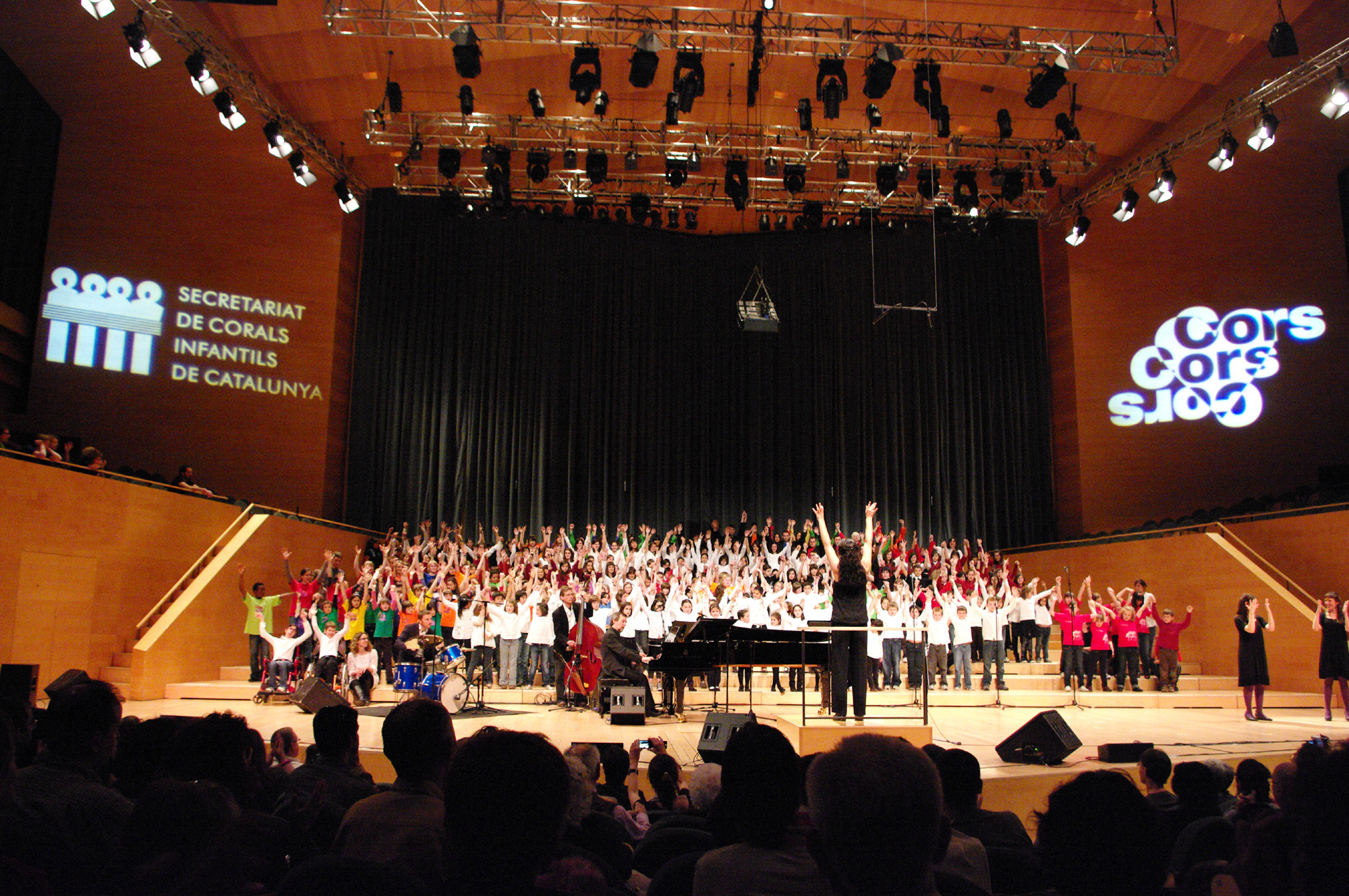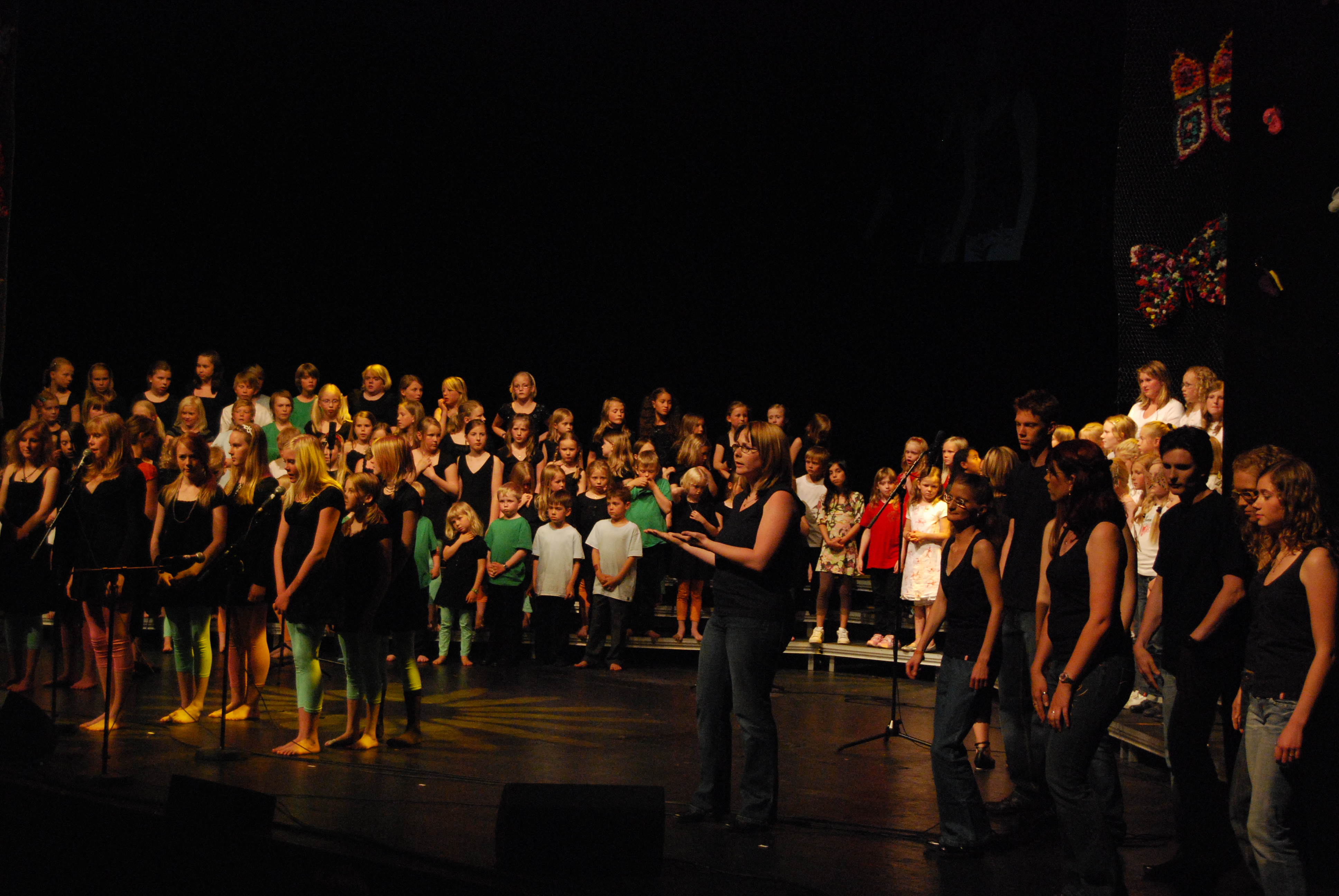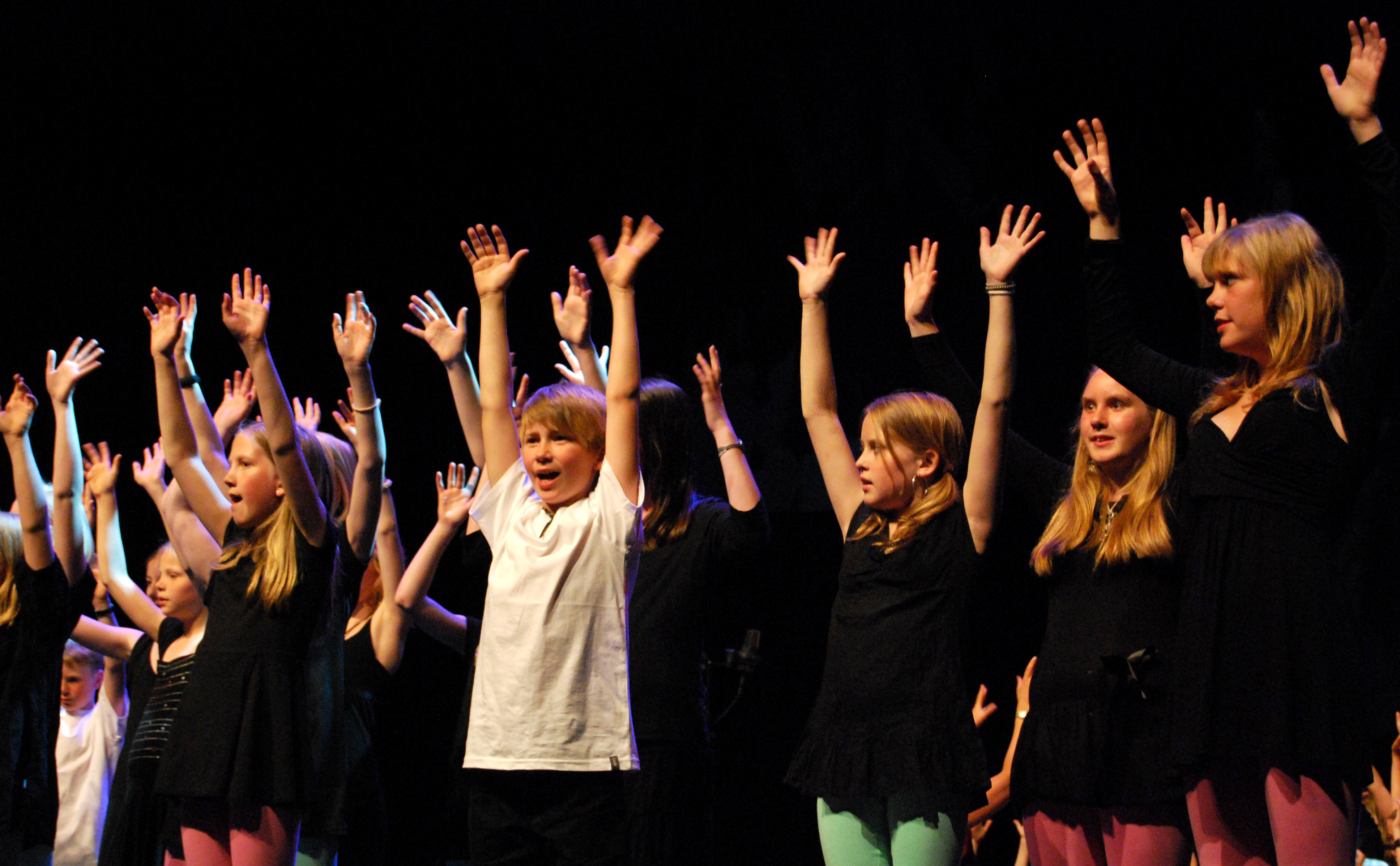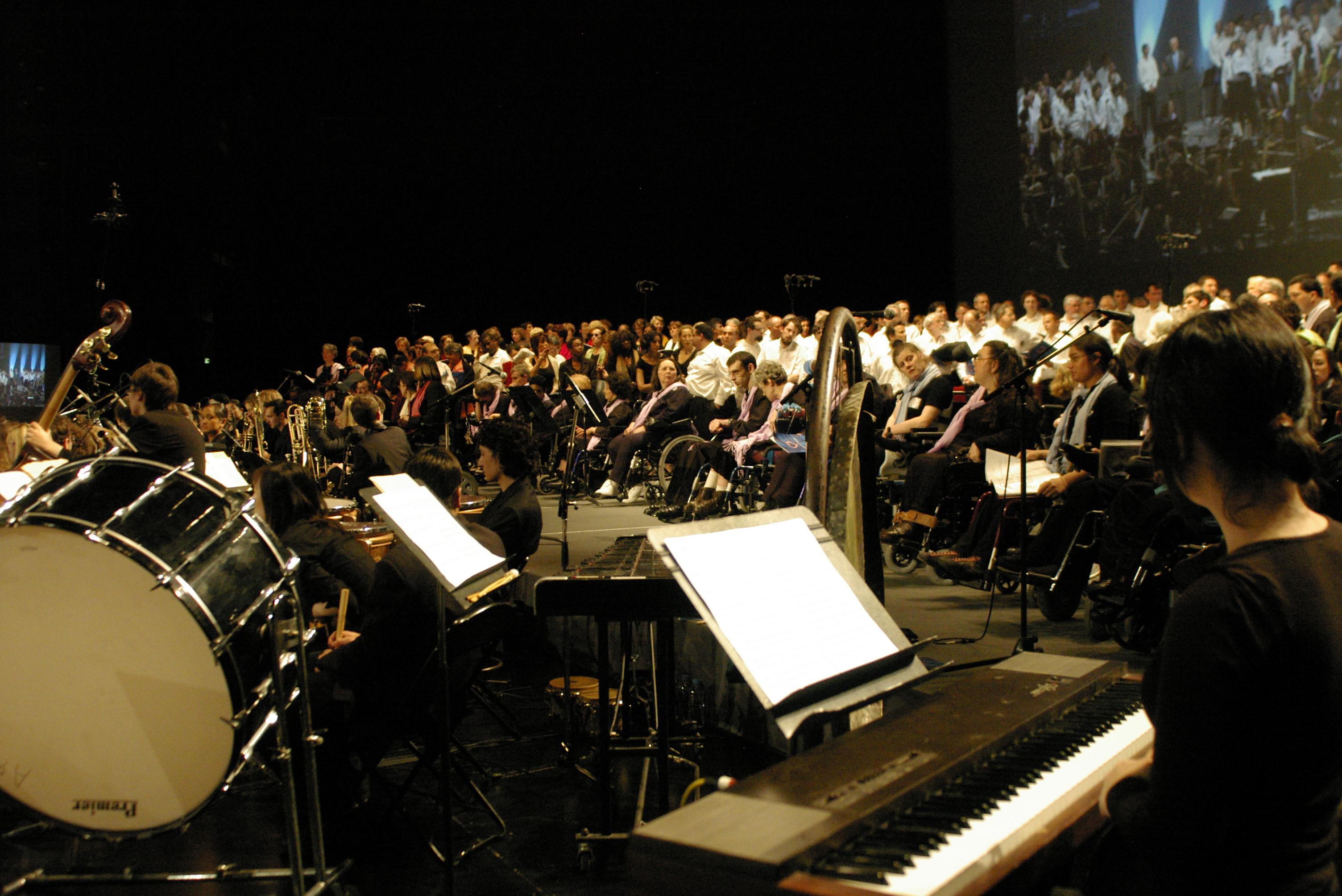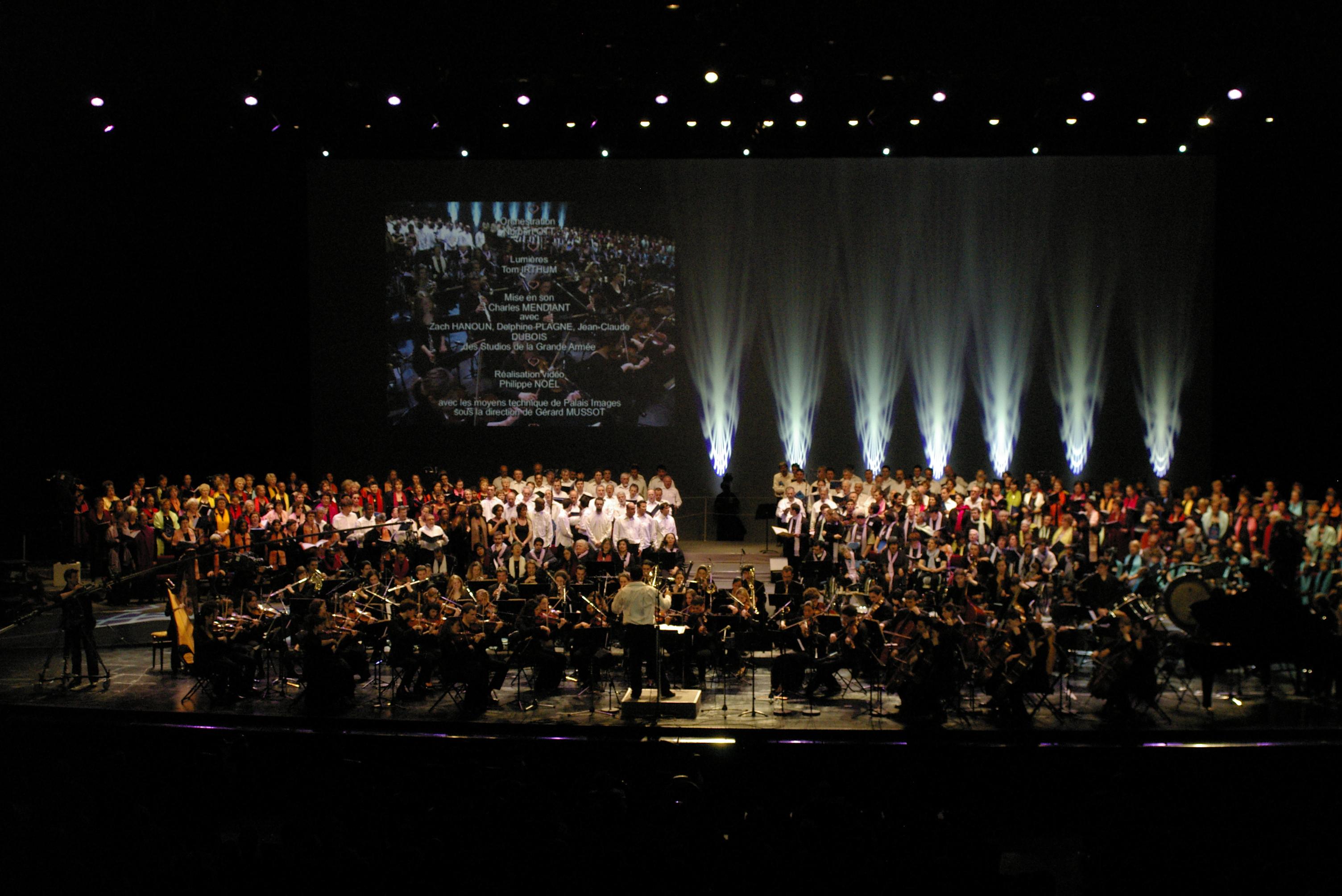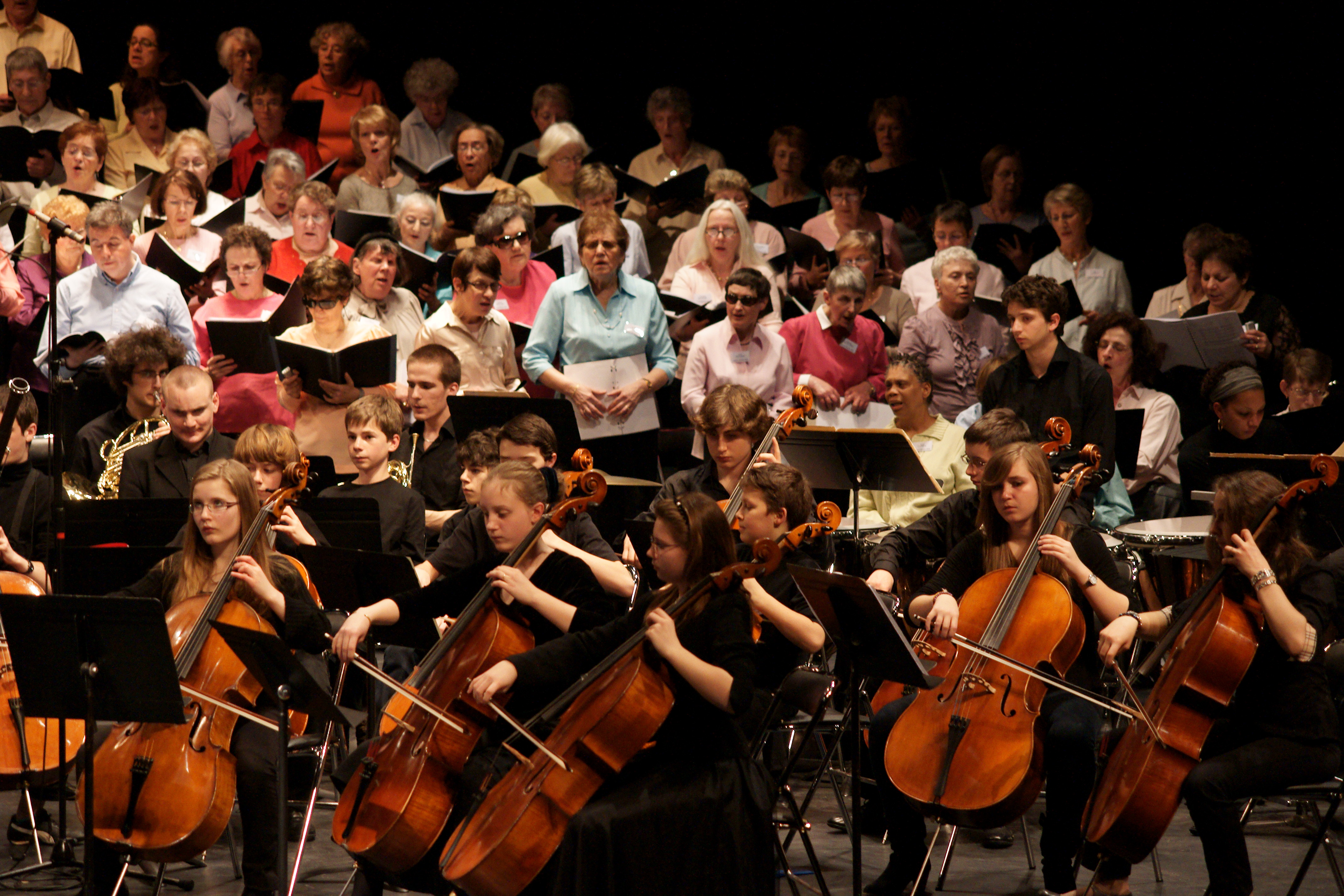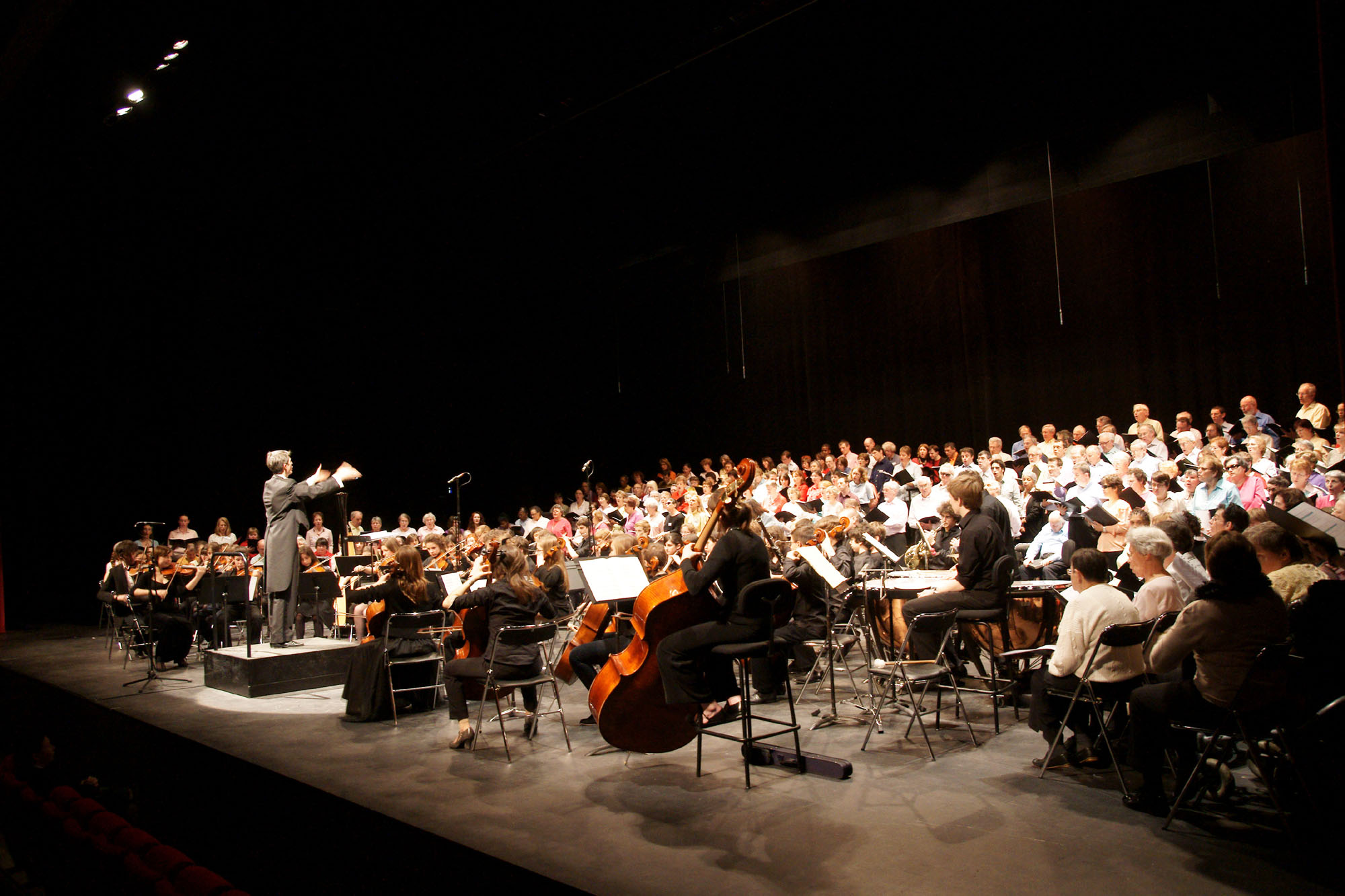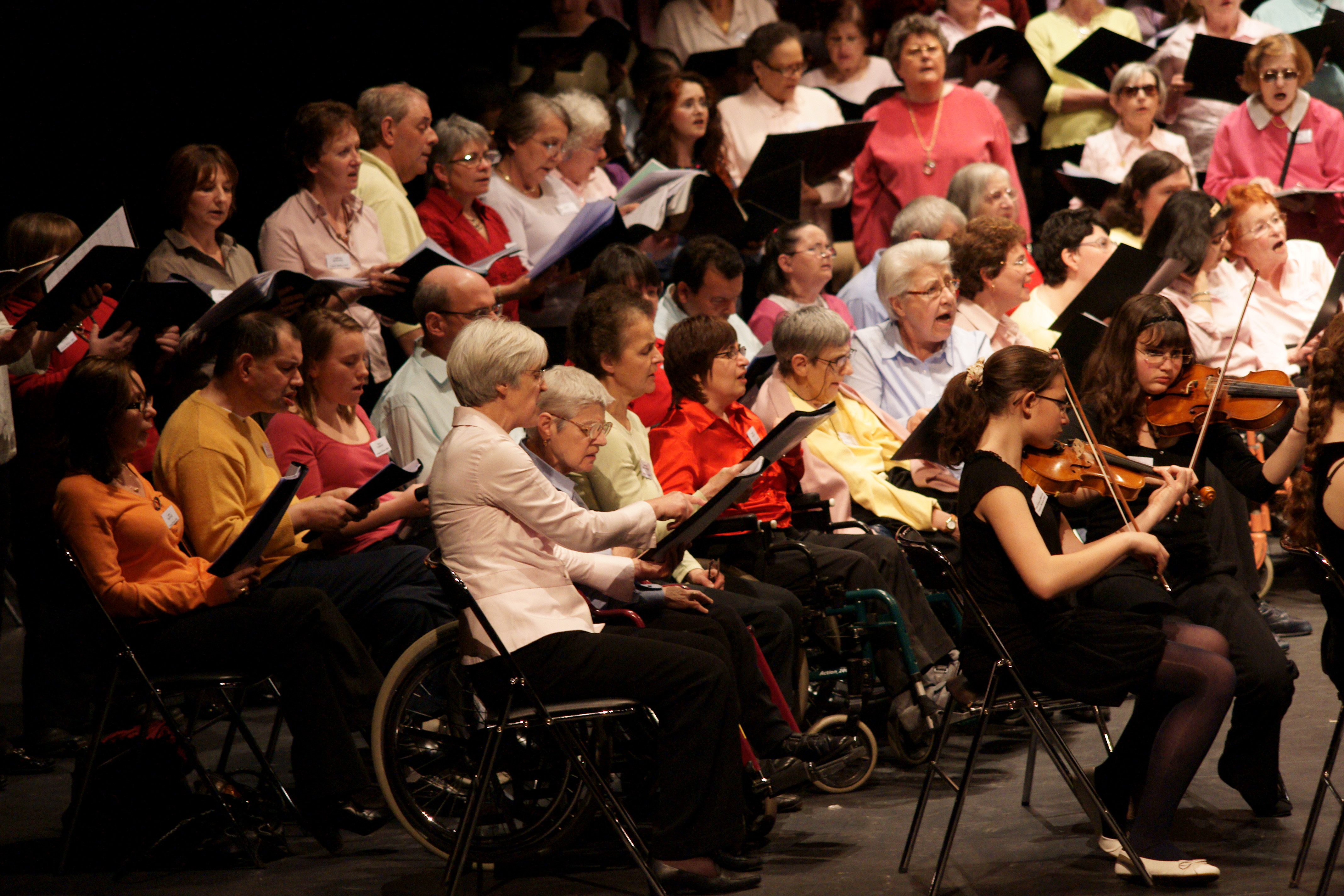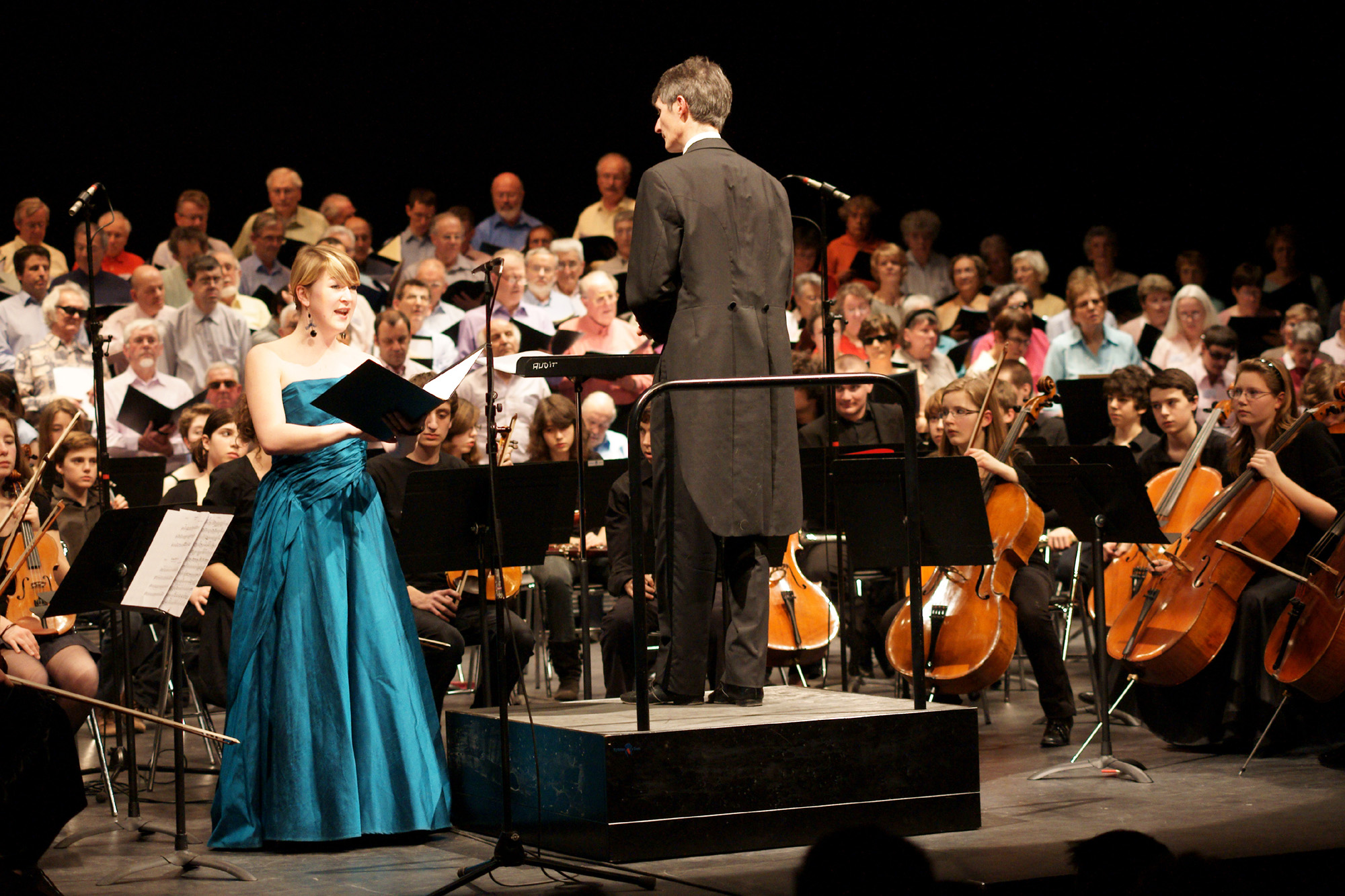Hearts in Harmony
Initiated in France in 2006 under the name “Cœurs en Chœurs”, Hearts-in-Harmony is an international series of events under the patronage of the European Choral Association at which disabled and non-disabled singers come together to sing.
Each Hearts-in-Harmony event has another focus and deals with different types of disabilities.
We ask choral associations across Europe to help with data on inclusive choirs and activities in their respective countries and regions.
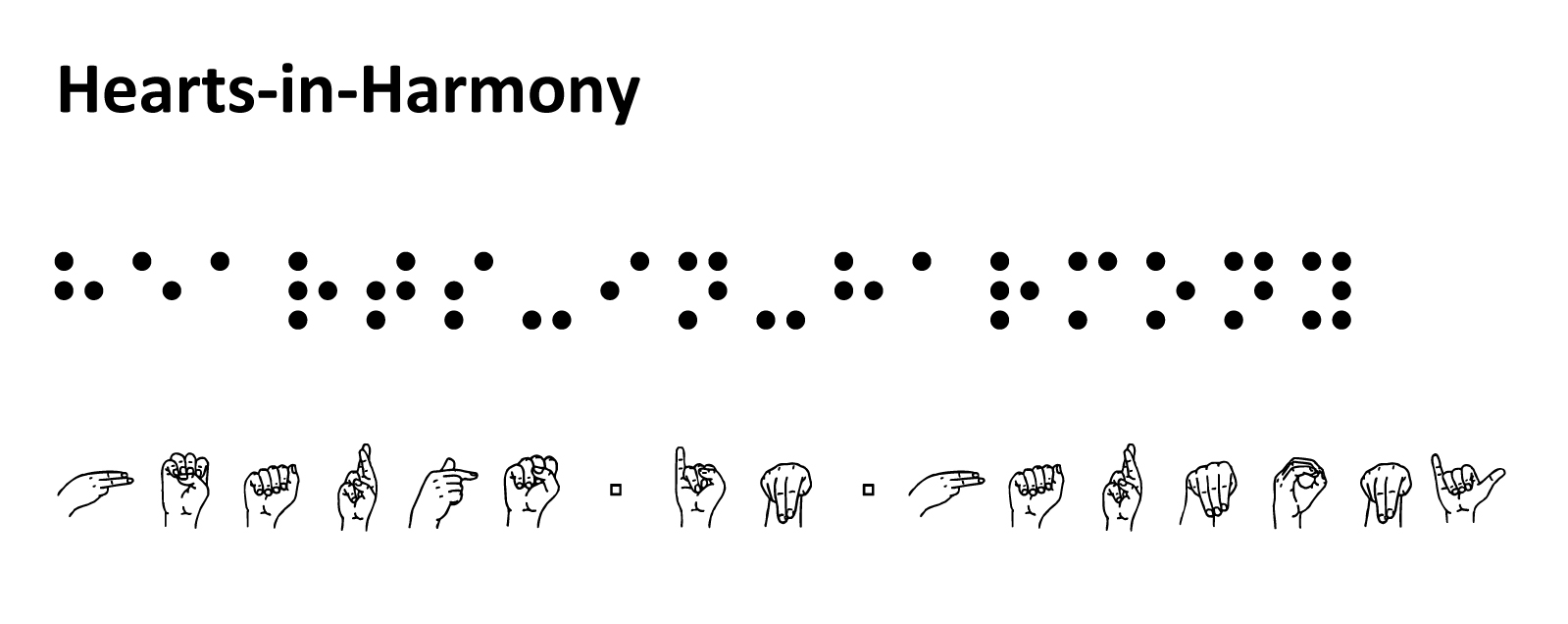
Hearts-in-Harmony events
2017 | Novi Sad (RS)
2016 | Novi Sad (RS)
2015 | Barcelona (ES)
2014 | Novi Sad (RS)
2014 | Barcelona (ES)
2013 | Antwerp (BE)
2013 | Novi Sad (RS)
2013 | Barcelona (ES)
2012 | Novi Sad (RS)
2011 | Novi Sad (RS)
2011 | Örebro (SE)
2010 | Barcelona (ES)
2010 | Budapest (HU)
2008 | Trondheim (NO)
2006 | 1st Hearts-in-Harmony Concert in Paris (FR)
Background reading about working with disabled singers
- 2005 | “Journeys of isolation” by Andy and Liz Barraclough [EN | FR | DE]
- 2006 | “Concert Coeurs en Choeurs” [EN | FR | DE]
- 2008 | “Hearts in Harmony in Trondheim” [EN | FR | DE]
- 2010 | “El hearts in harmony de Budapest” | “Como fer de la inclusió una realitat” [in Catalan]
- 2010 | “When music helps to live” by Jacques Vanherle [EN | FR | DE]
- 2010 | “On ne voit bien qu´avec le chœur”
- 2010 | “Inclusief zingen voor koren zonder beperkinger” by Koenraad De Meulder [in Flammish]
- 2010 | “Hearts in Harmony in Budapest” by Annaliese Zeh [in German]
- 2011 | “Singing with a handicap – and without. An eye open”
- 2011 | “Un chœur qui bat…a Boulogne” by Michel Gauvry
Useful tools & links
FreeDots: an open source programme for the transformation of traditional music notation into Braille music
Awards
IMC Musical Rights Award 2011
The Hearts-in-Harmony project in Barcelona was one of three winners of the IMC Music Rights Awards 2011.
Launched in 2009, the IMC Musical Rights Awards are given to programmes or projects, nominated by IMC members, that support in an exemplary way one or more of the five musical rights enunciated by the Council.
Hearts-in-Harmony in Barcelona is a project of SCIC (Secretariat de corals infantils de Catalunya), the Catalan Children’s Choir Association, and was nominated by the European Choral Association – Europa Cantat together with the Moviment Coral Català (MCC) Mediterranean Office for Choral Singing.
The Jury of the IMC Musical Rights Award, chaired by Einar Solbu from Norway, wrote:
“This programme aims at including people with various handicaps and disabilities in choral music making. It builds on two very important principles; that those with defined disabilities be integrated with musicians and other music making people who have not had their possible disabilities defined; and that those responsible as leaders and conductors for the integrated ensembles through specialised studies be prepared to create a natural unity of those making music. The programme hence focuses more on abilities than disabilities.
The programme clearly supports the musical rights for a group of people which is often left out when music initiatives for “all children and adults” are being planned and carried out, indeed the right to express themselves musically, to learn musical languages and skills, and to have access to musical involvement, in this case first of all through participation. The programme stands out as an excellent example for other music making bodies.”
The top winner of the 2011 Awards was the “Music. Play for Life” hosted by Music Council of Australia, the other winning project was “Teaching Cantonese Opera in Hong Kong Schools”, hosted by The Hong Kong Institute of Education.
In addition three special commendations were awarded to (in alphabetical order):
“Espace Akto”, hosted by the African Academy of Choral Music (Democratic Republic of Congo), “The National Youth Orchestra of Iraq” and “The ‘Polifonia’ Network for Music”.

